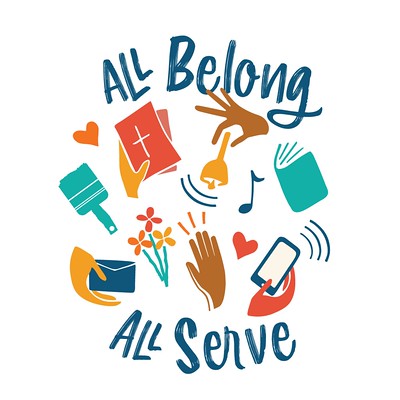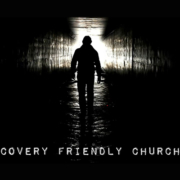Focus on the church family
Instead of saying “congregation,” I prefer the expression “church family.” When we think of a congregation, we picture from an organization with a constitution and prescribed activities. When we think of a family, we see loving relationships that can vary, like parents, siblings, and spouses. Within the church family, you’ll find relationships like shepherd/sheep, church council/member in the pew, fellow members, choir members, altar guild members, and youth group members. The expression “church family” suggests a mutual love and commitment to each other with differing relationships.
Special Ministries equips church families. Our mission is to provide resources and guidance for churches to care for their own.
 Special Ministries sometimes serves an individual directly. We provide Christian audiobooks for the blind. We send seasonal Christian cards and letters to people with developmental disabilities. But the true goal of Special Ministries’ work is to foster church members’ love and compassion and a commitment to meeting the spiritual needs of every member of the church family. Pastors may use the resources we develop and guidance we provide, but our hope is that other members of the church family will be able to serve, using Special Ministries’ training and materials.
Special Ministries sometimes serves an individual directly. We provide Christian audiobooks for the blind. We send seasonal Christian cards and letters to people with developmental disabilities. But the true goal of Special Ministries’ work is to foster church members’ love and compassion and a commitment to meeting the spiritual needs of every member of the church family. Pastors may use the resources we develop and guidance we provide, but our hope is that other members of the church family will be able to serve, using Special Ministries’ training and materials.
Another parallel between family and church: family members often bring home friends. People Mom works with become aunts and uncles. Classmates from school join the family on trips. These “outsiders” are drawn because the family has blessings to share. In a similar way, the church family grows to include people in the community. Just as the love between family members morphs naturally into compassion for others, so the church family grows. Special Ministries cultivates compassion ministry – why serve only one little girl with a developmental disability when the neighborhood has other children who need the same accommodation for Sunday School and worship?
Family takes care of each other. It’s a family responsibility, and when it doesn’t happen, we call it “neglect.” Can we neglect our frail senior members who need help hearing the service or accessing the building? Can we ignore the spiritual needs of the young adult with autism, or our daughter who struggles with recovery from addiction? Of course not – these are children of our Heavenly Father, brothers and sisters of Christ our Savior. We have a commitment to bring the gospel and to love each other as the Lord Himself instructed us. If you need help for a member of your church family to worship and participate in the family, contact Special Ministries!
Rev. Jim Behringer, director of the Commission on Special Ministries
SUBSCRIBE TO HIS HANDS
Get Special Ministries news and updates right to your inbox.
SUPPORT SPECIAL MINISTRIES
Support the ministry work of WELS Special Ministries.







